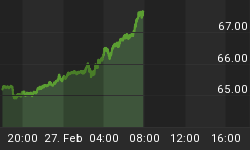Wells Fargo has done it again. The major US bank has been scrambling to rebuild its reputation over the past couple of years, tarnished by major scandals; and now, it’s in the spotlight once again.
In a six-page letter to customers obtained by CNBC, Wells Fargo has informed its customers that over the next several weeks, it will close all existing personal lines of credit--for good.
In the letter, the bank said that it had “recently reviewed its product offerings and decided to discontinue offering new Personal and Portfolio line of credit accounts and close all existing accounts…The account closure is final”.
The bank said it was discontinuing the product so it can focus on personal loans and credit cards. Wells Fargo didn’t specifically say why it was getting out of the personal credit line business.
According to the bank’s press release, clients will be informed two months before their accounts are shut down, with their remaining balances paid off over regular minimum payments at a fixed rate.
The revolving credit lines, ranging from $3,000 to $100,000, allowed customers to consolidate higher-interest credit card debt and avoid overdraft fees on checking accounts, among other things.
However, the bank also said that the closure of the accounts may have an impact on the credit score, which will have customers up in arms, and possibly regulators, too. “We realize change can be inconvenient, especially when customer credit may be impacted,” bank spokesman Manny Venegas told the media.
That didn’t sit well with some, including former presidential candidate Senator Elizabeth Warren, who Tweeted that not a single customer should see their credit score suffer just because their bank is restructuring after years of scams and incompetence.
“Sending out a warning notice simply isn’t good enough – Wells Fargo needs to make this right,” Senator Warren wrote.
The bank’s decision comes three years after the Federal Reserve imposed an asset cap on the bank to limit its ability to grow its balance sheet until it addressed the improper accounts and practices.
Also in 2018, Wells Fargo was forced to pay the Consumer Financial Protection Bureau (CFPB) $1 billion in a settlement over charges that the bank had levied inappropriate fees on mortgage borrowers and forced loan customers to purchase auto insurance. The Department of Justice also imposed a hefty $2.09-billion fine on the bank for the sale of residential mortgage loans that contained misstated income information.
You can read a comprehensive list of Wells Fargo’s past scandals here.
The banking industry as a whole posted $147.9 billion in profits in 2020, which is a 36.5% decline from the prior year. And unlike other industries, the six biggest banks posted decent profits in 2020, led by JPMorgan with $29.1 billion, Bank of America with $17.9 and Wells Fargo $3.1 billion.
And when the economy started to recover at the end of last year, banks did, too--many of them beating estimates for Q1 2021.
In May, the six largest bank CEOs appeared before the Senate for a banking committee hearing on the oversight of Wall Street firms. The focus was the fact that the pandemic did not threaten bank profitability; yet, banks failed to do much of anything to help out ordinary people during the pandemic.
On other hand, total outstanding U.S. consumer debt balance grew $800 billion to a record high of $14.88 trillion in 2020--the highest annual growth recorded in over a decade.
















